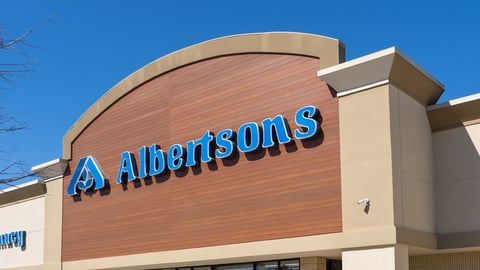Kroger Focused On Price Cuts, Employees Following Merger Rejection
Kroger is reiterating its efforts to lower prices and invest in its employees as the grocer moves forward following its failed effort to merge with Albertsons.
"We are at our best when we serve others – our customers, associates, and communities – and we take seriously our responsibility to provide great value by consistently lowering prices and offering more choices,” said Rodney McMullen, chairman and CEO of Kroger. “When we do this, more customers shop with us and buy more groceries, which allows us to reinvest in even lower prices, a better shopping experience, and higher wages.”
McMullen also said the company has terminated its merger agreement with Albertsons, saying further pursuit of the merger is no longer in the company’s best interest.
On Tuesday, December 10, U.S. District Court Judge Adrienne Nelson blocked the merger and said in her ruling, “Evidence shows that defendants engage in substantial head-to-head competition and the proposed merger would remove that competition.”
The following day, Albertsons filed a multi-billion dollar lawsuit claiming, among other things, willful breach of contract. The grocer is also seeking a $600 million termination fee related to the proposed merger.
Kroger called Albertsons’ lawsuit “baseless and without merit.”
In a press release issued by Kroger, McMullen outlined several initiatives the company has worked on in recent years. They include:
- $5 billion in lower prices since 2003
- $2.4 billion in incremental wage increases on top of industry-leading benefits since 2018, a 38% increase in average hourly rate, while growing opportunities for a largely unionized grocery workforce
- $3.6 - $3.8 billion in annual capital investments to build new and remodel stores, food processing, and other facilities, improve the customer experience, and create additional job opportunities
- $2.3 billion to support local communities through charitable giving since 2017, including $1.5 billion to feed hungry families
"Kroger is moving forward from a position of strength,” McMullen said. Our go-to-market strategy provides exceptional value and unique omnichannel experiences to our customers which powers our value creation model. We look forward to accelerating our flywheel to grow our alternative profit businesses and generate increased cash flows. The strength of our balance sheet and sustainability of our model allows us to pursue a variety of growth opportunities, including further investment in our store network through new stores and remodels, which will be an important part of our 8 – 11% TSR model over time.”




